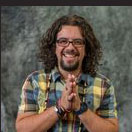
The borders of our classroom
I am starting a new job at Union Theological Seminary in New York city. It is a joy beyond measure for me. As we know well, when we start a new job, our new position comes with lots of expectations, insecurities, hopes, and power. It is incredible how an institution can make us feel more or less powerful. The moral and historical weight of some institutions have a deep impact on our psyche.
In this time of adjustment, I am busy settling in and getting prepared for my first of everything: faculty and student meetings, all kinds of meetings, chapels, classes and so on. I am getting very anxious. Not a surprise, this anxiety found a place in my dreams. Last week I dreamt that it was time for Convocation (I am supposed to speak at convocation this year) and I was running late. I walked to the chancel where the faculty was seated and I had no robe and was walking barefoot. You now have all you need to go anywhere you want in interpreting my dreams. Email me if you want to give me tips. However, the fundamental interpretation of my dream is mine. Contradictory to its pieces, a vague possibility of meaning can be: walking late is my anxiety with being here and not follow things properly; walking barefoot might be that I am relaxed and able to be myself; and walking without my Doctoral robe can be the eternal impostor syndrome that affects so many minority teachers, I am not sure what people might think of me and one day they will discover me, since I am an impostor.
In any case, the sharing of my dreams is to say that my full being is entrenched in the very craft of
 teaching. Our inner life is never detached from our outer life. We feel and think together, our bodies are part of a much larger scheme of things, we get sick when workplaces are dysfunctional. Thus, my class is just a fold within many folds of correlation in the lives of my students, the school, and this country/world. Our classrooms have deep implications associated with the social, racial, sexual, religious, cultural, economic conditions of our students. No text is a text that stands on itself. Every reading is a dialogue, some better than others of course, with worlds opening and/or closing, colliding in many ways, and in all of the teaching/learning exchange life is figured, disfigured, and refigured.
teaching. Our inner life is never detached from our outer life. We feel and think together, our bodies are part of a much larger scheme of things, we get sick when workplaces are dysfunctional. Thus, my class is just a fold within many folds of correlation in the lives of my students, the school, and this country/world. Our classrooms have deep implications associated with the social, racial, sexual, religious, cultural, economic conditions of our students. No text is a text that stands on itself. Every reading is a dialogue, some better than others of course, with worlds opening and/or closing, colliding in many ways, and in all of the teaching/learning exchange life is figured, disfigured, and refigured.
Extending the many folds of our classrooms, our schools are enmeshed in specific economic models, models that are changing our craft in so many ways. The neoliberal system that presses any institution into turning a profit, moving education and health systems into forms of gaining money, is transforming practices and conversations about education. Schools are becoming pawns of the market and its educational strategies are more often in the hands of economists or market specialists than educators. Without money, we can’t do anything. While it seems and feels that this is fundamentally right, the results in my view are desolating. For the students: students receive a narrow education; mostly to perform specific functions in the market; students become customers and teachers become the student’s employees. For the professors: faculty receives cumulative work for administration with the same or larger teaching loads, the disappearance of tenure -- especially when minorities are raised to tenured positions, increasing adjunct positions, a loss of worker’s rights, smaller salaries, and reduced benefits. All of this suggests how expansive a classroom can be and how anxious it can become.
Nonetheless, when we check the borders of our classrooms, we realize that no pedagogy is neutral, or objective. Neutrality is often a form of pretending we are not supporting a political, economic system. Objectivity has been, in the words of Adrienne Rich “little more than male subjectivity.” In some ways, very small ways, the borders of our classrooms, both the content and the frame, can help shift worldviews, forms of living and help create new worlds. Critical pedagogies engage students to criticize the inequality of our class system, undo many forms of coloniality, contraband knowledges, create common spaces of differences, debunk ideas, demise economic systems, break down blind consensus, shift some circles of feelings that serve capitalism, challenge political views, confront ignorance and break chains of oppression. If our classes, whatever classes we teach, do not aim at undoing injustices, confronting capitalism/globalization/imperialism and serve the poor, it will tend to maintain conformity and complacency with the powers that be, sustaining class structure and inequality. Capitalism is eating us alive! We cannot let it go without criticism and action.
We need teachers who know what their classrooms and pedagogies can do! Peter McLaren says the following:
This is because naming let alone questioning the social, political, cultural, and economic arrangements under capitalism constitutes a form of political intervention and activism that for many educators is simply too risky. Instead, many engage in a form of “soft-radicalism” that scantly scratches the surface of the mechanisms of the dominant ideology. Here, protests reverberate like distant eructations from the bar stools of the local pub. Other colleagues may hide their class and race privileges in an obscure political and ideological discourse and language that leaves little room for actually addressing the material needs of those in our society who permanently live on the margins and the periphery.[1]
Educators have to be aware of the many borders that clearly mark their classrooms. In this very short post, I just want to remind us how, from dreams to social class exploitation, from syllabi to gender troubles and sexual fluidities, from course evaluations to race and class struggles, from advising to students' loans and debts, from class discussions to being under neoliberal economic systems, everything is part of our daily craft. Either we see and talk about it, or not. For me, we have a moral responsibility to address it.
[1] McLaren, Peter; McLaren, Peter; Farahmandpur, Ramin (2004-11-23). Teaching against Global Capitalism and the New Imperialism: A Critical Pedagogy (p. 7). Rowman & Littlefield Publishers. Kindle Edition.
Leave a Reply